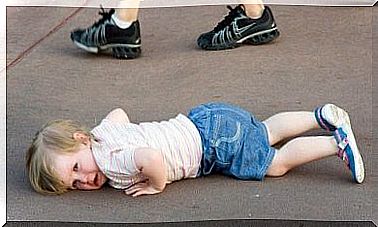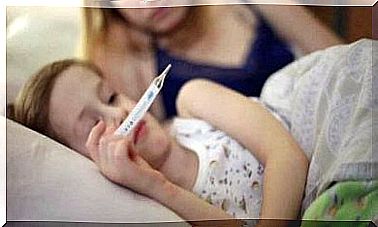The Development Of The Language In Children From 0-6 Years
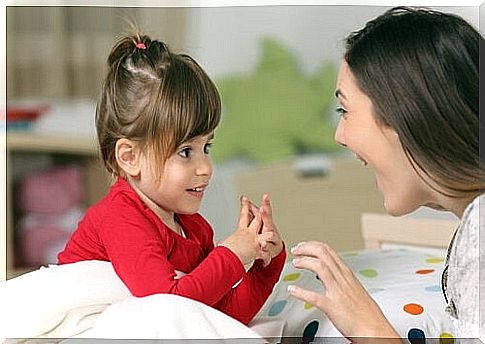
During the first years of a child’s life, development and change occur at a much higher rate than any other time. Children develop fundamental skills, physically, mentally and socially. The development of the language in children from 0-6 years is an example of these rapid and marked changes.
During this period, children have a natural aptitude for learning. Therefore, early stimulation is an advantage and the family environment is a key factor for progress.
When it comes to language, people around the child are extremely relevant. In the development of language in children from 0-6 years, imitation has a great influence, so the role models around the child will be significant.
The stages of language development in children from 0-6 years
0-12 months
- This is the “pre-linguistic” phase. The child does not use words. It is a preparatory stage for the language as we know it.
- The child still communicates with people. He cries when he is hungry or freezing, or needs to have his diaper changed. He smiles socially, screaming for attention.
- There are different types of crying and screaming. The mother is able to understand each of these messages. She knows if the crying is due to hunger or cold as each cry has different shades.
- At the end of this stage, the child tests different sounds. He babbles, learns to pronounce vowels and some consonants. Sounding “mo” and “fa” that occur have nothing to do with the words “mother” and “father”, but are closer variations of different sounds.
- Progress continues gradually. At the end of this period, the child understands that there is a connection between his name and himself. Use simple words. He understands very well words that denote certain actions. “Give me” and “here” are often the first words the child understands.
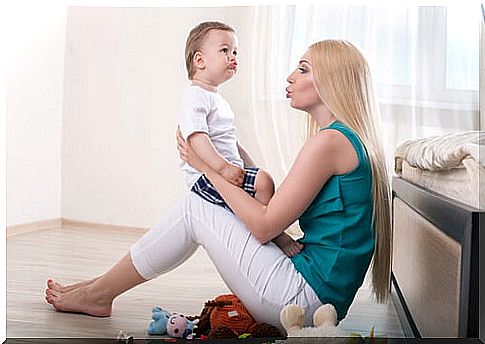
‘
12-24 months
- During this period , the child can understand and comply with orders. He is able to use simple words and these are generally nouns related to objects.
- He communicates what he wants, with words like: “no”, “it”, “more”. He can combine two words, a noun and a verb. For example: “mother milk”. The words are accompanied by signs, especially to signal what he wants.
- During his development, he will be able to reproduce simple songs.
- There are children who acquire a very good vocabulary and linguistic structures at the end of this period. This development depends to a large extent on what stimulation the child receives from his surroundings.
Imitation has a great influence on the development of language in children between 0-6 years.
2-6 years
- If the child’s development has been normal, at the age of 2 he will have full development of the language. He can express himself naturally and fluently, and can communicate exactly what he wants.
- He may have trouble pronouncing some consonants, but this will be resolved by practicing. If it persists, it is recommended to consult a specialist. She will suggest strategies that will help the child overcome these problems early.
- By the age of 4, the basic vocabulary will be complete. The child can combine words in simple sentences. Statements will gradually become more complex and better structured.
- The ability to understand will also have been improved.
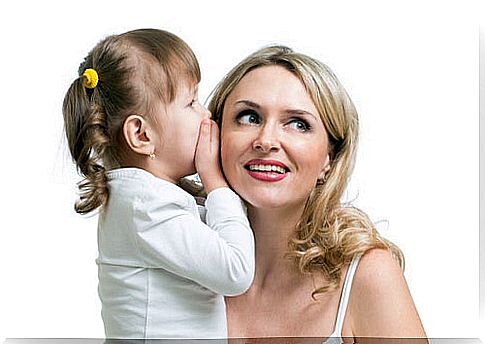
- If the child has been introduced to books in this development, the child will begin to become interested in the written language. He will understand that letters express messages. It’s time to teach him the letter his name starts with, as well as words that are meaningful to him, such as “mom” and “dad.” Approach this task as a game, which will give him a good start on the road to reading.
- When he has a fairy tale book in his hands, he will typically ask, “What does it say here?” This question indicates that he knows that the narratives are made with words.
How to stimulate the development of language in children from 0-6 years
You can help your child create understanding of and use the language through a few simple and everyday exercises.
Here are a few tips:
- Invite him to use language to express what he feels and what he wants.
- Answer words and do not sign when he asks you something.
- Teach him songs, rhymes and poems.
- Read long stories to him.
- Talk to your child without using childish words.
It is important not to underestimate a child’s linguistic capacity, and to keep in mind that he understands much more than he can say.
